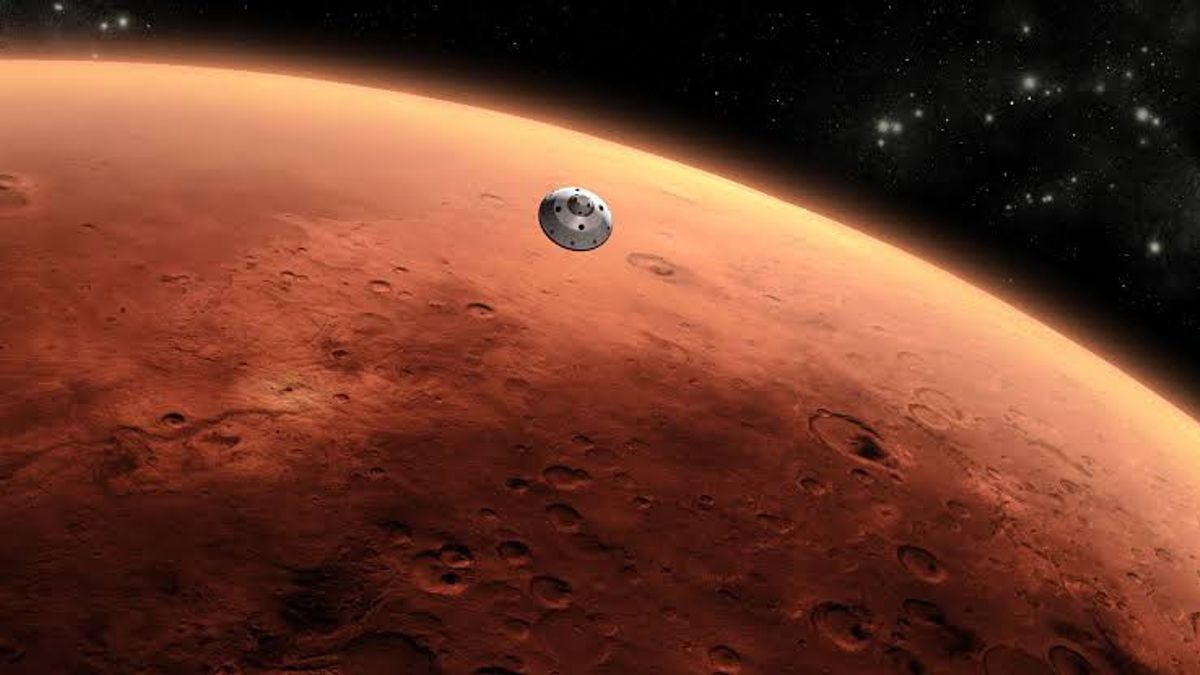JAKARTA - Mars has become an interesting planet for us, because the puzzle of its ancient life is always there. Previously, Mars was a dry desert without water about 3 billion years ago. However, recent research suggests a different answer.
Research conducted by scientists found Mars showed water flowing 2 billion years ago, or 1 billion years later than scientists thought.
That means, if life on Mars ever existed, it could be more time to stay, or thrive on the Martian surface.
"Mars has had a longer habitat than we thought," said Bethany Ehlmann, a planetary scientist and associate director of the Keck Institute for Space Studies at the California Institute of Technology.
Evidence of water on Mars is shown in this image captured by NASA's Mars Reconnaissance Orbiter satellite. The scientists saw images of draining channels and basins containing a lot of salt.

It was an uneven white lump that was visible in the ducts. The salt deposits, Ehlmann explains, are on the lower slopes of the higher elevations. This is solid evidence that water once melted from the snow on slopes and hills (as it does on Earth) and then flowed downwards.
"They had to come from the snow and ice," said Ehlmann.
The research, published in the journal AGU Advances, found these salty mineral deposits in shallow pools and winding channels that once filled these ponds.
Until now, these salty deposits were used by scientists to understand how long it took for craters and volcanic soil to form on Mars. For example, if the volcanic field formed about 2 billion years ago, then the salt that accumulated above must have flowed afterward, giving an approximate age.
Previous Mars satellites actually discovered this salt almost 15 years ago. But old discoveries have yielded exciting new insights about water on Mars.
Planetary scientists believe Mars was once a world with vast blue oceans, much like Earth. What is still unknown is whether there is life thriving in Mars' watery spots.
NASA's Perseverance rover is currently searching for potential signs of past life in the planet's Jezero Crater, which NASA says was once flooded with water and was home to an ancient river delta.
However, Jezero Crater probably stored water about 3.5 billion years ago. This latest research suggests that Mars has held water much longer, perhaps much later than 2 billion years ago.
"Mars may have small amounts of liquid water much more recently than we thought. The question is how recent," concluded Ehlmann.
The English, Chinese, Japanese, Arabic, and French versions are automatically generated by the AI. So there may still be inaccuracies in translating, please always see Indonesian as our main language. (system supported by DigitalSiber.id)









